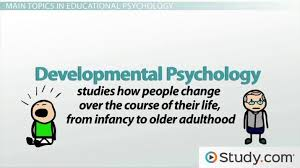How to use Educational Psychology in Testing Process?
Maximizing Educational Psychology in School Testing: Strategies for Success
Introduction
In the realm of education, the integration of psychology into the testing process is a potent tool for enhancing student learning outcomes. Educational psychology delves into how students learn and retain information, providing invaluable insights for educators to tailor assessments effectively. By harnessing principles from this field, schools can create testing environments that not only measure academic progress but also nurture student development. Here, we explore strategies on how to leverage educational psychology in the school testing process for optimal results.
1. Understanding Student Diversity: Educational psychology emphasizes the importance of recognizing individual differences among students. In the testing process, educators should consider diverse learning styles, cognitive abilities, and cultural backgrounds. By understanding these variations, tests can be designed to accommodate different student needs, ensuring fairness and inclusivity.
2. Applying Learning Theories: Educational psychology offers various learning theories, such as behaviorism, cognitivism, and constructivism. Integrating these theories into test design enables educators to assess not only factual knowledge but also critical thinking, problem-solving skills, and application of concepts. For instance, incorporating scenario-based questions can gauge students' ability to apply theoretical knowledge to real-world situations, aligning with constructivist principles.
3. Utilizing Formative Assessment: Formative assessment, a core concept in educational psychology, focuses on providing feedback to students during the learning process. By integrating formative assessments into the testing process, educators can identify students' strengths and weaknesses in real-time, allowing for timely interventions. This continuous feedback loop fosters a supportive learning environment and empowers students to take ownership of their learning journey.
4. Promoting Motivation and Engagement: Motivation plays a crucial role in student performance, as highlighted by motivational theories in educational psychology. Tests should be designed to promote intrinsic motivation by offering meaningful and relevant tasks that align with students' interests and goals. Additionally, incorporating elements of gamification, such as leaderboards or rewards, can enhance student engagement and foster a positive attitude towards testing.
5. Reducing Test Anxiety: Test anxiety can significantly impact student performance and well-being. Educational psychology offers strategies to alleviate anxiety, such as relaxation techniques, positive self-talk, and mindfulness exercises. Implementing these techniques before and during tests can create a supportive environment where students feel calm and confident, enabling them to demonstrate their true abilities.
6. Ensuring Validity and Reliability: Validity and reliability are essential principles in test construction, ensuring that assessments accurately measure what they intend to measure and produce consistent results over time. Educational psychology provides frameworks for validating test items and assessing their reliability through techniques such as item analysis and test-retest reliability. By adhering to these principles, educators can create assessments that yield meaningful and dependable data.
7. Embracing Technology: Technology offers innovative solutions to enhance the testing process in alignment with educational psychology principles. Computer-adaptive testing, for example, tailors the difficulty of questions based on students' responses, ensuring a personalized testing experience. Virtual reality simulations can also provide immersive assessment environments that stimulate real-world problem-solving skills. By leveraging technology, educators can create dynamic and engaging tests that resonate with digital-native students.
8. Fostering a Growth Mindset: Educational psychology advocates for the cultivation of a growth mindset, wherein students believe that their abilities can be developed through dedication and effort. Tests should be framed as opportunities for learning and growth rather than as measures of innate intelligence. Providing constructive feedback and emphasizing progress over perfection can nurture a growth mindset among students, empowering them to embrace challenges and persevere in their academic pursuits.
In conclusion, integrating principles from educational psychology into the school testing process offers a myriad of benefits for both educators and students. By understanding student diversity, applying learning theories, utilizing formative assessment, promoting motivation, reducing test anxiety, ensuring validity and reliability, embracing technology, and fostering a growth mindset, schools can create testing environments that foster holistic student development and academic success. By harnessing the power of educational psychology, educators can transform tests from mere assessments of knowledge to catalysts for meaningful learning experiences.





Comments
Post a Comment